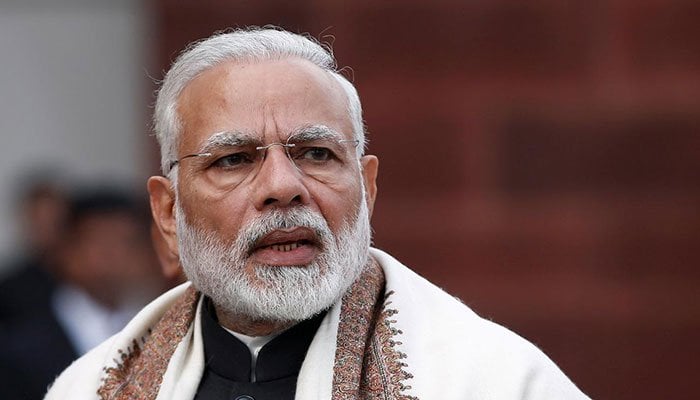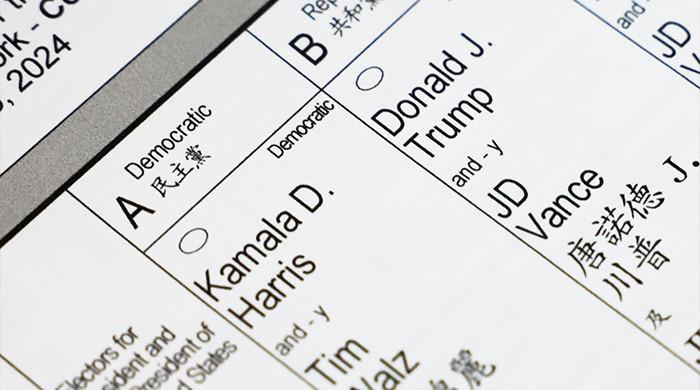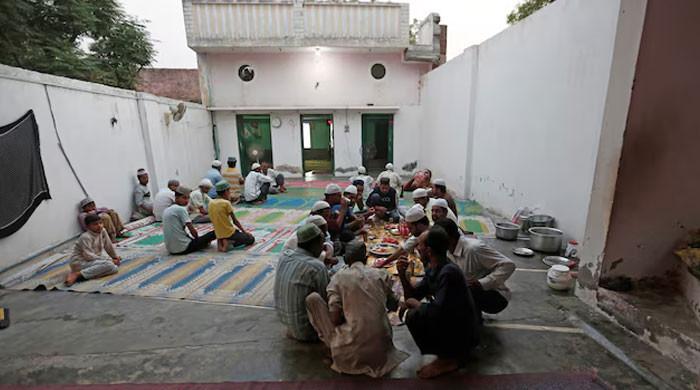Farmers protests: Modi takes U-turn on controversial farm laws
Thousands of farmers have been camped outside Delhi for almost a year now, protesting against the controversial laws
November 19, 2021

- Modi urges farmers to return to their families in contrite address.
- Reforms passed in September 2020 aimed to deregulate farm produce markets.
- Thousands of farmers have been camped outside Delhi for almost a year now, protesting against the controversial farm laws.
- "Congratulations for this victory against injustice. Hail India, hail the farmer of India," tweets Rahul Gandhi.
- Farmers had viewed controversial laws as an attempt by big businesses to seize farming industry.
Indian Prime Minister Narendra Modi has taken a stunning U-turn by announcing that his government will repeal three controversial agricultural reform laws that triggered massive protests across the country by farmers.
Thousands of farmers have been camped out on the borders of the capital New Delhi since November last year, posing Modi with one of the biggest challenges since he came to power in 2014.
The rallies became a lightning rod for opposition to Modi's administration in a country where two-thirds of the 1.3 billion population rely on agriculture for their livelihood.
In a contrite address to the nation coinciding with a major Sikh festival -- the religion of many farmers -- Modi said the laws would be repealed in parliament's winter session, which begins later this month.
"I appeal to all the farmers who are part of the protest... to now return to your home, to your loved ones, to your farms, and family. Let's make a fresh start and move forward," the 71-year-old said.
"Friends, I apologise to the countrymen and want to say with a clean heart and conscience that we must have fallen short in our efforts to explain (the benefits of the farm laws) to a section of the farmers."
The reforms passed in September 2020 aimed to deregulate farm produce markets where state bodies have for decades set guaranteed minimum prices for crops.
Modi's government had said the changes would boost rural incomes and reform a hugely inefficient agricultural sector where vast amounts of products rot before they can be sold.
"The intention was that the country's farmers, especially the small farmers -- who are almost 80 percent of all farmers, and have the smallest landholdings -- get more strength," Modi said Friday.
But protesters said the changes -- which were suspended pending negotiations with the farmers -- would have allowed big business to take over the farming industry.
'Great news'
The farmers first tried to march on New Delhi last November but in violent clashes police prevented them from entering the capital.
The farmers camped out at two sites outside the city, blocking major highways, and in the subsequent months they dug in as their numbers swelled to tens of thousands.
The protests turned into colourful semi-permanent camps with volunteers providing food, sanitation and even dentist surgeries and foot massage parlours.
The rallies turned violent in January when a tractor rally in Delhi transformed into a rampage that embarrassed the government on Indian Republic Day.
One farmer died and hundreds of police were wounded. Protesters broke through police barricades and managed to raise a flag at the historic Red Fort in central Delhi.
Last month in Uttar Pradesh, four farmers died when a convoy allegedly belonging to a government minister and his son slammed into a group of protesters.
Angry demonstrators then set fire to several cars and four other people were killed.
In recent months, the protest sites had thinned out, but a hardcore contingent remained and major demonstrations had been expected for the one-year anniversary of the start of the rallies later this month.
Modi's reversal came ahead of important upcoming elections in states such as Punjab -- where many of the farmers come from -- and Uttar Pradesh, India's most populous with 220 million people.
"Congratulations for this victory against injustice. Hail India, hail the farmer of India," tweeted Rahul Gandhi of the opposition Congress party.
Hartosh Singh Bal, political editor of Caravan magazine, told AFP: "The farm laws were dead in the water and it was always a question of Modi´s ego which stood in the way of government repealing them."











